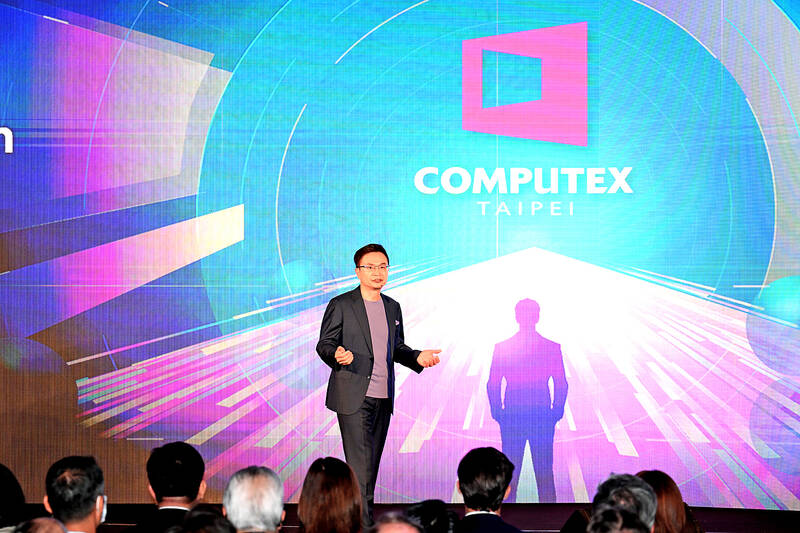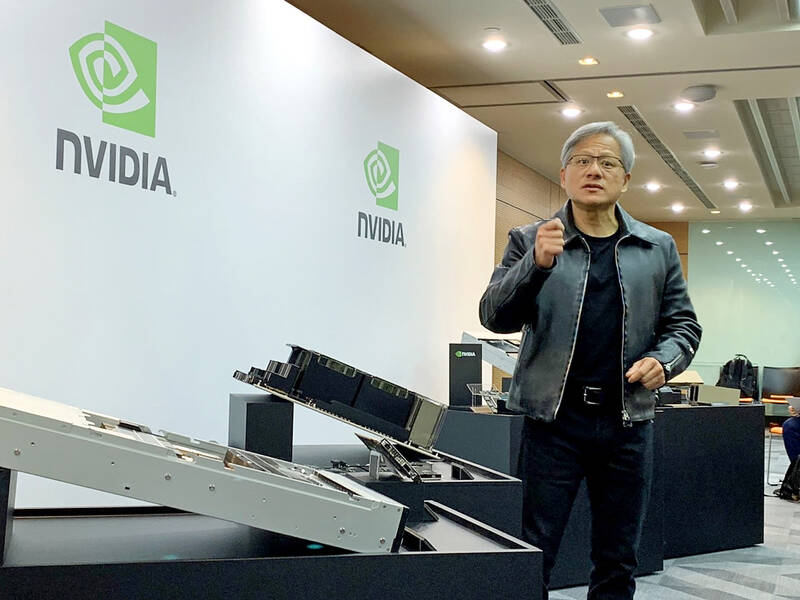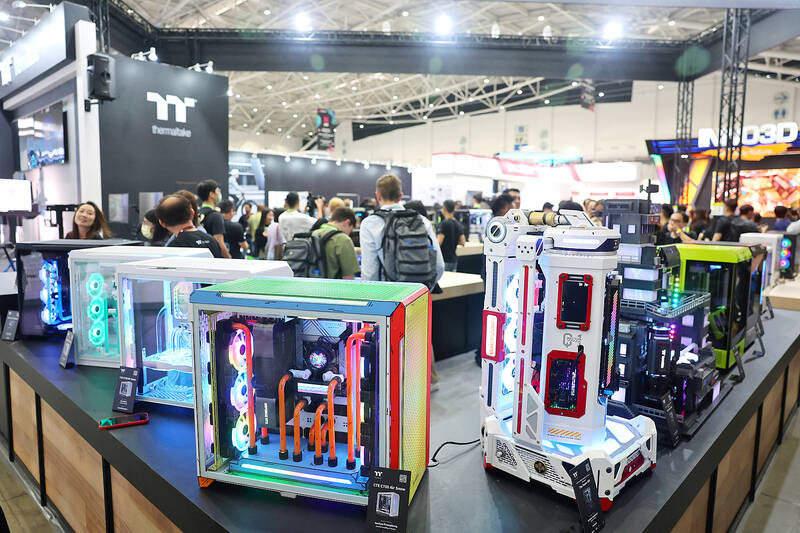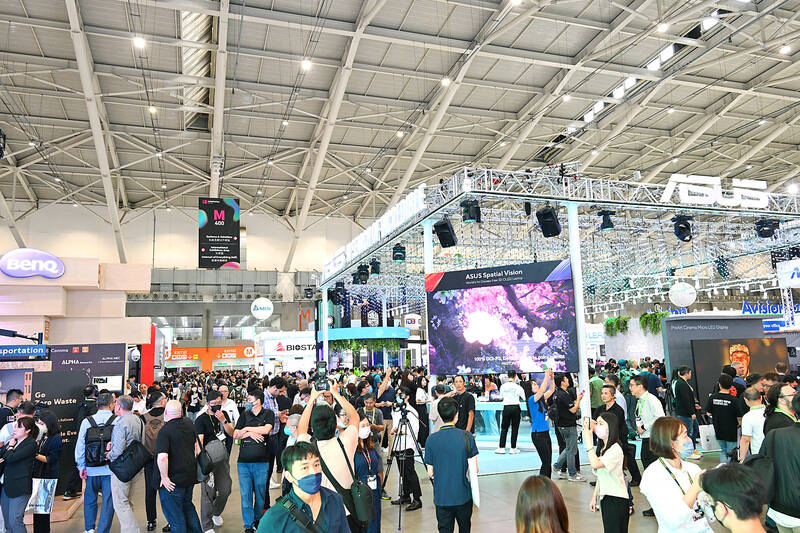Computex Taipei 2024 is to be held at Taipei Nangang Exhibition Center on June 4-7 under the theme “Connecting AI.” Attracting around 1,500 exhibitors and showcased in 4,500 booths, the exhibition features the latest tech trends in six subjects: AI Computing, Advanced Connectivity, Future Mobility, Immersive Reality, Sustainability and Innovations.
Focused on AI, this year’s Computex brings together global technology industry players, start-ups, venture capitalists, accelerators and other partners to participate in the grand event, demonstrating the strength of Taiwan’s industry, and connects major international manufacturers, global technology players, start-up teams and professional buyers in the industry.
During the exhibition, major international technology companies will also take part in the keynote speeches (Computex Keynote) and forums (Computex Forum). With the theme of “Let’s Talk Generative AI,” this year’s forum invites international AI experts to have an in-depth discussion on the two core aspects — Applying Generative AI and Behind Generative AI (on key hardware innovation), exploring the development of forward-looking trends such as computing chips, cloud services, smart business opportunities, intelligent vision, spatial computing and Deepfake, as well as technological innovations in applied industries.

Photo: Tien Yu-hua, Liberty Times 照片:自由時報記者田裕華
Big names of global technology, such as AMD chair and CEO Lisa Su, Nvidia CEO Jensen Huang, Qualcomm president and CEO Cristiano Amon, Intel CEO Pat Gelsinger, MediaTek vice chairman and CEO Rick Tsai, Supermicro president and CEO Charles Liang, are set to deliver speeches at Computex Keynote.
The annual Computex, or Taipei International Information Technology Show, is the largest consumer electronics exhibition in Asia and the second largest in the world. It is an indicator exhibition for global information communications and Internet of Things technology applications, and is also an important business matchmaking platform for global startup companies’ strategic cooperation.
Jointly organized by the Taiwan External Trade Development Council and the Taipei Computer Association, Computex was once ranked as the world’s three most important computer exhibitions along with the discontinued CeBIT in Germany and COMDEX in Las Vegas, the US.

Photo: Cho Yi-chun, Liberty Times 照片:自由時報記者卓怡君
Computex 2024 will be open to the general public on June 7. Tickets can be purchased online at TaiTIX in advance or at the exhibition counter on the day.
The products displayed on-site at Computex 2024 are not available for retail sale. For those who want to snap up bargains of computer products, the TopLink Computer & Multimedia Show 2024, which will be held from June 28 to July 1 at Taipei World Trade Center’s Exhibition Hall 1, will be the place to go.
(Lin Lee-kai, Taipei Times)

Photo: CNA 照片:中央社
2024台北國際電腦展將於6月4日至7日在台北南港展覽館舉行。本次展覽以「AI串聯,共創未來」(Connecting AI)為主軸,預計有1,500家廠商、使用4,500個攤位,共同展示人工智慧運算、前瞻通訊、未來移動、沉浸現實、綠能永續及創新等六大主題。
今年台北國際電腦展以AI為主軸,匯集全球科技業者、新創企業、創投、加速器等夥伴共襄盛舉,展現台灣產業的卓越實力,並連結國際大廠、全球科技業者、新創團隊及業界的專業買主。
展覽期間,國際科技大廠將同步辦理多場主題演講(COMPUTEX Keynote)及論壇(COMPUTEX Forum)。今年論壇以「生成式AI新賽局」(Let’s Talk Generative AI)為主題,邀請國際AI專家深入探討AI應用布局及關鍵硬體創新兩大核心面向,包括運算晶片、雲端服務、智慧商機、智慧視覺、空間運算、Deepfake等前瞻趨勢發展,以及應用產業技術革新。

Photo: Tien Yu-hua, Liberty Times 照片:自由時報記者田裕華
超微董事長暨執行長蘇姿丰、輝達執行長黃仁勳、高通總裁暨執行長艾蒙、英特爾執行長季辛格、聯發科副董事長暨執行長蔡力行、美超微總裁暨執行長梁見後等全球科技巨擘,都將發表專題演講。
一年一度的台北國際電腦展是亞洲第一大、全球第二大的消費性電子展覽,是全球資通訊及物聯網科技應用的指標展覽,也是全球新創企業策略合作對象媒合之重要平台。
台北國際電腦展是由外貿協會與台北市電腦公會聯合舉辦,曾與已經停辦的德國CeBIT及美國拉斯維加斯COMDEX,並列為全球最重要的三大電腦展。
本次電腦展6月7日對一般民眾開放,可事先於TaiTIX購票,或當日於展覽現場櫃台購票入場。
COMPUTEX 2024國際電腦展現場展示的產品,並不提供零售。民眾若想搶購便宜電腦產品,可期待6月28日至7月1日在台北世貿一館登場的台北國際電腦多媒體展。
(台北時報林俐凱)

US President Donald Trump has renewed his ambition to take control of Greenland for national security reasons and questioned whether Denmark has any legal right to the Arctic island. The debate has revived scrutiny of how Greenland became part of Denmark, its current self-rule and path to independence, and Washington’s military footprint. HOW DID DENMARK GET GREENLAND? Greenland was inhabited by Inuit peoples from Asia and North America intermittently from around 2,500 BC. Around 985 AD, Vikings led by Erik the Red settled in southern Greenland, farming and building churches. Around the same time, ancestors of today’s Inuit arrived, living as hunters

A: In its latest annual travel guide, Bloomberg recommended two restaurants in Taipei: Golden Pig barbeque from South Korea and two-Michelin-star restaurant A. B: Also, tourists should definitely try Taiwanese cuisine while they’re here. Mountain & Sea House, Shin Yeh Taiwanese Cuisine, and Fujin Tree Taiwanese Cuisine & Champagne are good options. A: For local snacks, Fu Hang Soy Milk, Fu-Ba-Wang Pigs’ Knuckles Restaurant, and Wang Ji Rice Dumplings are all very popular. B: And the gold medalists of the 2025 Taipei International Beef Noodle Festival — Yun Shui Kitchen, The Howard Plaza Hotel Taipei, and Come N’ Eat

A: Bloomberg just released its annual travel guide, titled “25 Best Places to Travel in 2026.” What were the best Asian destinations? B: There were actually six Asian hotspots: Taiwan’s Taipei, Malaysia’s Penang, Kazakhstan’s Almaty, Indonesia’s Rote Island, India’s Tiger Reserves, and Oman. A: With its mix of traditional food and modern cuisine, Taipei has become a rising food capital in Asia. B: As Bloomberg reported, “Taiwan is a place that bubbles up in culinary conversation because of its famed beverage, bubble tea, and its early adoption of modern night markets.” A: And Din Tai Fung has now

Owls have long fascinated people with their distinctive appearance and mysterious habits. These nocturnal birds possess large, round eyes and a flat facial disc. Their feathers come in shades of brown, gray, or white, helping them blend easily into the darkness. The most remarkable trait of owls is that they can turn their heads without damaging blood vessels. Contrary to popular belief, they can only rotate their heads up to 270 degrees, not 360 degrees. Owls have 14 cervical vertebrae, which is twice as many as humans. This special physical structure compensates for their inability to move their eyes within their